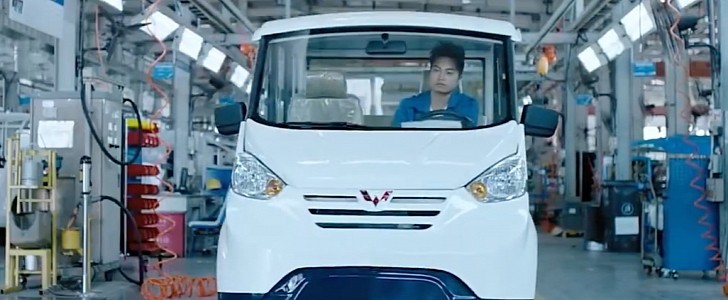Electric vehicles are an emerging industrial revolution, and China seems to be on the verge of seizing the moment. Their electric car market rose by 154% in 2020 despite a global shortage in microchips. In the Chinese city of Liuzhou, 30% of vehicles sold in 2020 were EVs, and recently several Chinese electric automakers announced plans to start using Nvidia chipsets to power their electric car systems.
In 2021, Chinese companies sold 3.3 million units in China, up from 1.3 million in 2020 and 1.2 million in 2019. Global electric vehicle sales increased by 69% in the first 11 months of 2021, with China leading in global growth, Fortune reported.
In 2021, BYD sold 603,783 EV units, including passenger vehicles, buses, trucks, and forklifts, taking the stand as an industry leader in China in new energy technologies. Tesla took second place selling about 240,000 units, about 26% of its total global sales.
Warren Buffet-backed BYD EV isn’t the only EV automaker in China. Nio, Wuling, Huawei, Baidu, Jidu and more than 200 others are all attracted by its potential, aggressively fighting to gain an edge on the market.
Nio opened a large factory in central China and has plans to open another one a few miles away. Chinese EV start-up Xpeng Motors also opened a vast assembly plant and developed a matching factory close by. It has announced plans for a third.
Geely and tech giant Baidu set aside $400 million toward a joint venture Jidu. The fund will go into research and development and mass production.
American EV pioneer Tesla also set shop in China, investing $188 million to expand its Shanghai factory capacity, amping its investment in the Asian market.
But critics argue that saying China has won the EV race is premature judgment. The Asian giant might have strengths in EV technology and production, but it doesn’t mean its EVs will receive global adoption or acceptance.
Chinese brands will first have to actively compete with established brands like Toyota and GM in a market with exceedingly high consumer expectations to dominate the global market.
In 2021, BYD sold 603,783 EV units, including passenger vehicles, buses, trucks, and forklifts, taking the stand as an industry leader in China in new energy technologies. Tesla took second place selling about 240,000 units, about 26% of its total global sales.
Warren Buffet-backed BYD EV isn’t the only EV automaker in China. Nio, Wuling, Huawei, Baidu, Jidu and more than 200 others are all attracted by its potential, aggressively fighting to gain an edge on the market.
Nio opened a large factory in central China and has plans to open another one a few miles away. Chinese EV start-up Xpeng Motors also opened a vast assembly plant and developed a matching factory close by. It has announced plans for a third.
Geely and tech giant Baidu set aside $400 million toward a joint venture Jidu. The fund will go into research and development and mass production.
American EV pioneer Tesla also set shop in China, investing $188 million to expand its Shanghai factory capacity, amping its investment in the Asian market.
But critics argue that saying China has won the EV race is premature judgment. The Asian giant might have strengths in EV technology and production, but it doesn’t mean its EVs will receive global adoption or acceptance.
Chinese brands will first have to actively compete with established brands like Toyota and GM in a market with exceedingly high consumer expectations to dominate the global market.









